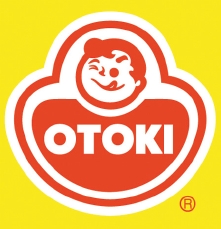Korean food company OTOKI, long known in Korea for its “God-ttoogi” reputation as a “good-hearted corporation,” faces a $20 million lawsuit in the United States over a dispute with its longtime distributor.

The suit, filed in the U.S. District Court for the District of New Jersey, was brought by OTG New York, Inc., which claims OTOKI America, Inc.—the U.S. branch of OTOKI—unilaterally terminated its 17-year distribution contract and took over its sales network.
According to the complaint, OTOKI America recently purchased an industrial property near Orangeburg, New York, for $22 million, located about ten minutes from OTG New York’s office. The conflict allegedly began after a former LG Electronics executive, connected by marriage to the OTOKI founding family, was appointed as Global Business Division head.
The complaint states that in early last year, OTOKI America abruptly canceled its contract with OTG New York without prior notice, citing supposed violations of payment terms. It then notified major retailers to redirect outstanding payments to OTOKI America, which the plaintiff argues effectively stripped OTG New York of its business operations.
OTG New York’s CEO, who joined OTOKI (then Ottogi) in 1987, later moved to Los Angeles in 2005 as OTOKI America’s first sales director. In 2008, at the company’s request, he founded OTG New York to expand markets in the eastern U.S. The company invested millions to develop a distribution network covering New York, New Jersey, Chicago, Georgia, and eastern Canada. By 2023, it employed 18 people, recorded annual sales of $15 million, and reached a cumulative revenue of $132 million.
The complaint further alleges that OTOKI America instructed OTG New York to raise its product prices on Amazon while lowering its own product prices without prior discussion, diverting customers. After the termination, OTOKI America allegedly hired OTG New York’s former employees to gain internal data and systematically attract existing clients.
As a result, OTG New York claims it suffered steep supplier price increases, delivery delays of up to eight months, and blocked collection of receivables—conditions that threatened the company’s survival.
The lawsuit accuses OTOKI America of violating the New Jersey Franchise Practices Act (NJFPA), breaching its contract, and engaging in unlawful interference with business operations. OTOKI America’s request to transfer the case to California was denied, and the court also rejected its motion to dismiss the case on March 31.
Industry observers noted that the case undermines OTOKI’s long-cultivated image as a “good company,” pointing out that a large corporation appears to have overtaken a Korean American entrepreneur’s market built over decades.
The ongoing litigation is expected to serve as a key test for how major Korean conglomerates and Korean American firms can coexist fairly in overseas markets.



